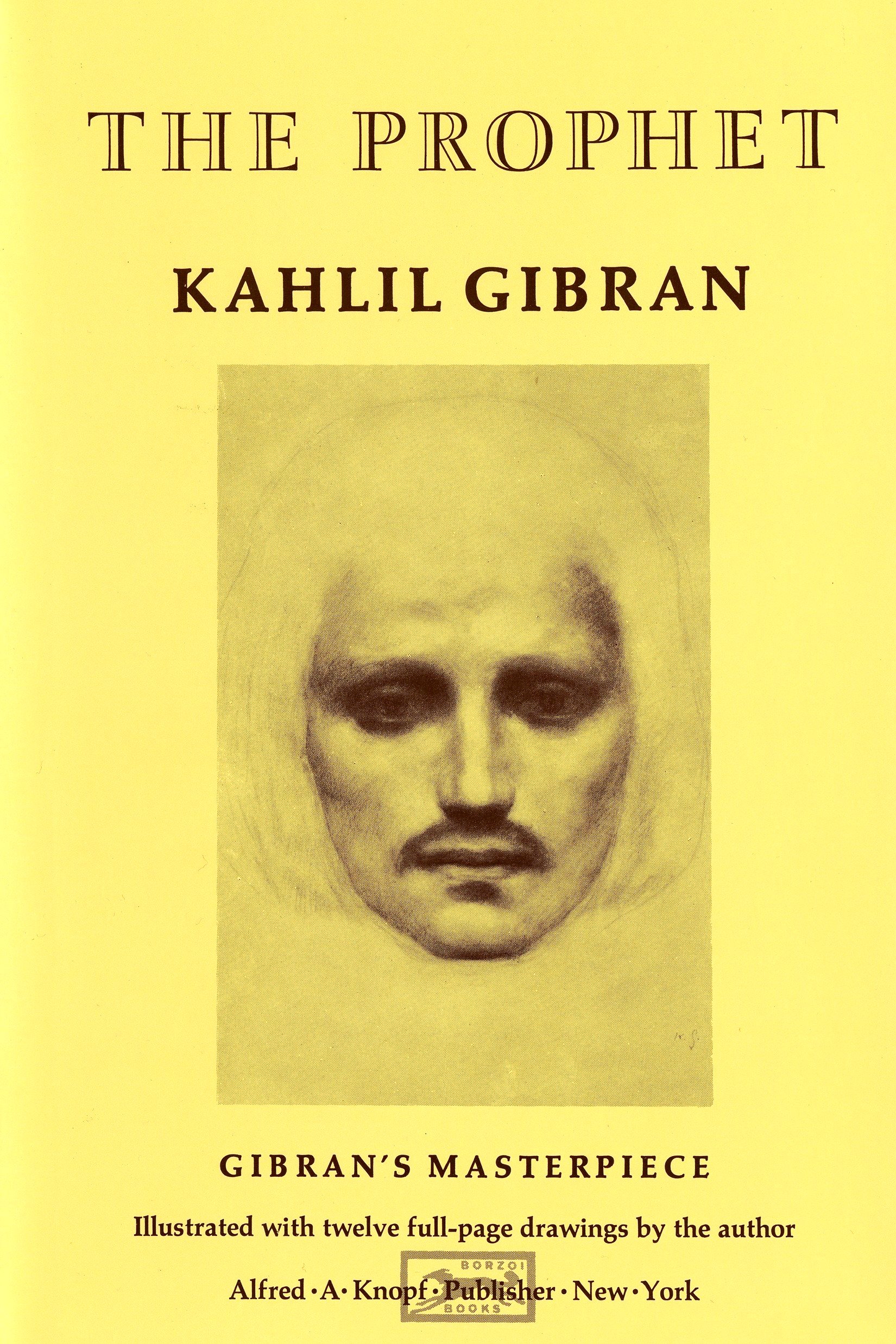
The Prophet (Check on GoodReads)
By Kahlil Gibran
First published: January 1, 1923
Categories: Fiction, Poetry, Classics, Philosophy, Spirituality, Literature
01. Overall Summary.
The Prophet by Khalil Gibran is a poetic and philosophical work that explores the depths of the human experience through the lens of a wise and beloved prophet, Almustafa. As Almustafa prepares to leave the city of Orphalese after twelve years, the people gather to seek his wisdom on various aspects of life. The book is structured as a series of twenty-six poetic essays, each addressing a different topic such as love, marriage, children, giving, work, joy and sorrow, and death. Through these essays, Gibran offers profound insights into the human condition, blending Eastern and Western philosophical traditions.
02. Key Themes.
- The Interconnectedness of Life and Death.
- The Importance of Self-Knowledge and Personal Growth.
- The Balance Between Joy and Sorrow.
- The Significance of Work and Purpose.
- The Role of Freedom and Responsibility.
- The Nature of Time and the Present Moment.
03. Main Characters/Protagonists.
- Almustafa: The protagonist and wise prophet who has spent twelve years in the city of Orphalese. He is a spiritual guide who shares his wisdom on various aspects of life as he prepares to leave the city.
- Almitra: A wise and intuitive woman who serves as a spiritual counterpart to Almustafa. She is the first to speak to him and asks him about the topics that the people of Orphalese wish to understand.
- The People of Orphalese: The inhabitants of the city who seek Almustafa’s wisdom. They represent the collective human experience and serve as a backdrop for the philosophical discussions in the book.
04. Important Plot Points.
- Almustafa’s decision to leave Orphalese after twelve years.
- Almitra’s request for Almustafa to share his wisdom before departing.
- The series of poetic essays in which Almustafa addresses various aspects of life.
- The final farewell of Almustafa as he boards the ship to leave Orphalese.
”Work is love made visible. And if you cannot work with love but only with distaste, it is better that you should leave your work and sit at the gate of the temple and take alms of those who work with joy.
Almustafa
05. Author’s Purpose.
Khalil Gibran’s purpose in writing The Prophet is to offer spiritual and philosophical insights into the human experience. Through the character of Almustafa, Gibran explores the complexities of life, love, and the human condition, blending Eastern and Western philosophical traditions. The book serves as a guide for readers seeking wisdom and understanding, encouraging them to reflect on their own lives and the deeper meanings behind their experiences.
06. Unique Elements.
- Poetic and Philosophical Style: The book is written in a poetic and philosophical style, blending prose and poetry to convey deep insights.
- Structured as Essays: The book is structured as a series of twenty-six essays, each addressing a different topic related to the human experience.
- Universal Themes: The themes explored in the book are universal and timeless, resonating with readers across different cultures and generations.
- Symbolism: Gibran uses rich symbolism to convey his messages, such as the ship symbolizing Almustafa’s journey and the sea representing the unknown.
07. Personal Insights.
The Prophet is a deeply moving and thought-provoking book that offers profound insights into the human experience. Gibran’s poetic and philosophical style creates a sense of timelessness, making the book relevant to readers of all generations. The themes of love, self-knowledge, and the interconnectedness of life and death resonate deeply, encouraging readers to reflect on their own lives and the deeper meanings behind their experiences. The book’s universal themes and rich symbolism make it a powerful and enduring work of literature.
08. Critical Reception.
The Prophet has been widely acclaimed for its poetic beauty and philosophical depth. Since its publication in 1923, it has become one of the most beloved and widely read books of the 20th century. Critics and readers alike have praised Gibran’s ability to blend Eastern and Western philosophical traditions, creating a work that is both timeless and universal. The book has been translated into over 100 languages and has sold millions of copies worldwide, cementing its place as a classic of spiritual literature.
*Disclaimer: As an Amazon Associate, I earn from qualifying purchases made through the links on this page. You pay the standard price at no additional cost to you.

